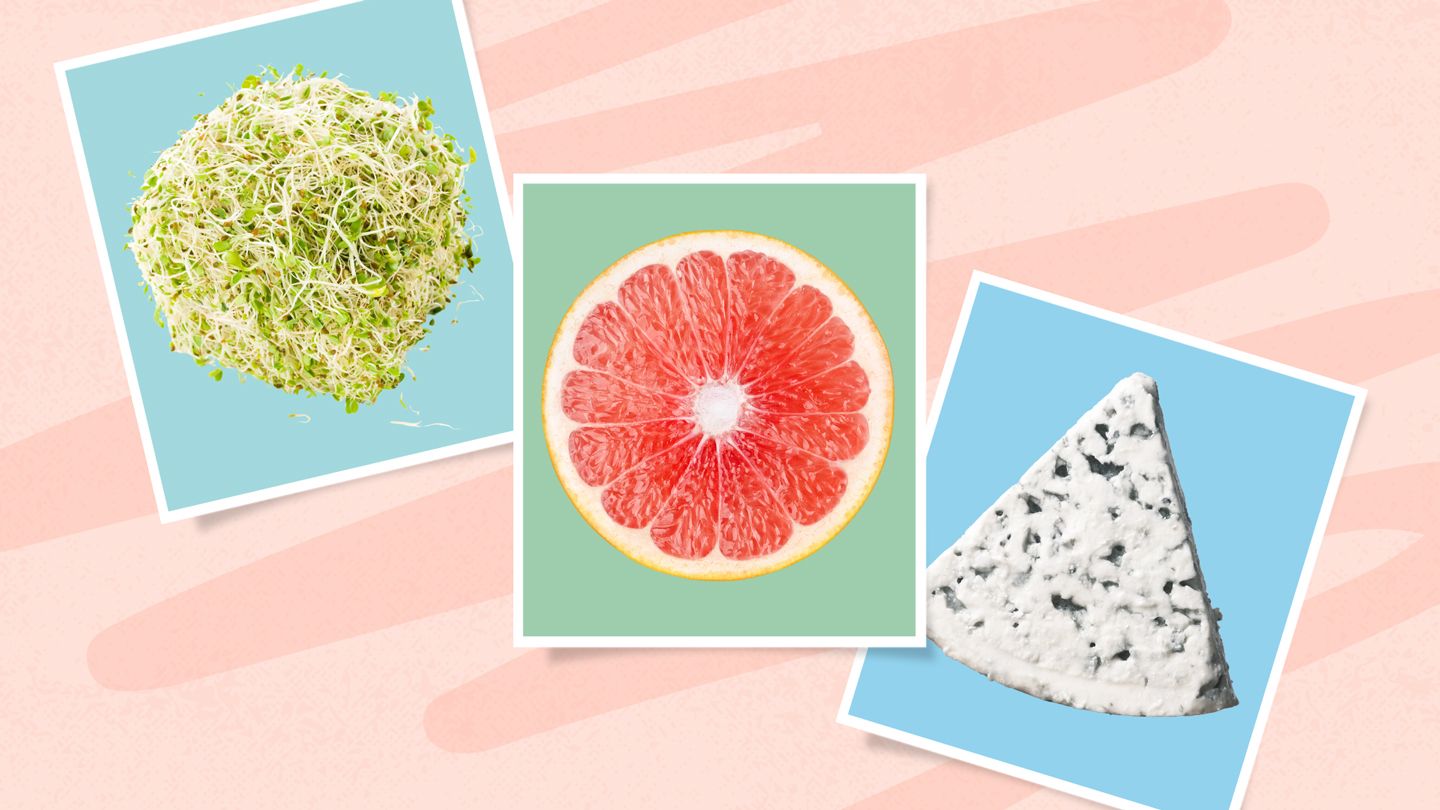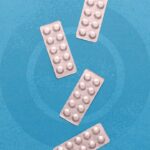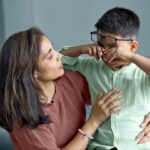1. Unpasteurized Milk
Unpasteurized milk (and juice) is especially dangerous for people with an immune system weakened by cancer treatment. “There’s a huge trend with raw milk right now,” says Carly Roop, RD, a clinical dietitian specialist at Penn Medicine’s Abramson Cancer Center in Philadelphia. “We would not recommend raw milk because you could potentially put yourself at risk for [bacteria] like listeria.”
2. Grapefruit
3. Raw or Undercooked Meat, Poultry, Fish, and Eggs
Salmonella bacteria also hides in eggs, which need to be cooked all the way through, too. Don’t eat them soft-boiled or over-easy. Also avoid any foods that contain raw eggs, such as unbaked cookie dough and cake batter, some Caesar salad dressings, and hollandaise sauce.
Keep raw and incompletely cooked foods separated from cooked foods. You should be keeping your cooking utensils separate for raw and cooked foods as well, to avoid cross-contamination.
4. St. John’s Wort
St. John’s wort is an herb that some people take to manage depression, anxiety, sleep disorders, or menopause symptoms. In addition to potential side effects like headache and nausea, this supplement can make chemotherapy medications less effective.
That’s because St. John’s wort acts on enzymes that help the body break down and remove drugs in the liver. Older research shows that it may cause the liver to remove chemotherapy drugs more quickly than usual, making them less effective. No newer research is available, as St. John’s wort is generally not recommended by healthcare professionals, as it can be unsafe in several circumstances, such as when taking certain medications. If you’ve been using St. John’s wort, stop at least one week before starting cancer treatment. And don’t begin taking this supplement during cancer treatment without your doctor’s okay.
5. Sprouts
Any raw fruits and vegetables may be problematic during cancer treatment, because they can carry infection-causing germs on their surface, says Lichtenstein. That’s especially true for alfalfa and bean sprouts. These foods grow in warm, moist conditions, where it’s easy for bacteria like salmonella and E. coli to attach to them. Do not eat sprouts, as they cannot be thoroughly washed.
Other raw fruits and vegetables are safe as long as they are thoroughly washed under running water. If you have neutropenia, consult your doctor for a specialized diet plan, which might cut out all raw fruits and vegetables entirely.
6. Unpasteurized Cheeses
Pasteurized cheeses like cheddar, Parmesan, and American are safe to eat during cancer treatment (they should say “pasteurized” on the package). Avoid unpasteurized cheeses like these (often soft cheeses), which can carry bacteria:
- Brie
- Camembert
- Roquefort
- Bleu
- Gorgonzola
- Stilton
- Cotija
- Queso blanco fresca
7. Echinacea
8. Sushi
9. Hot Sauce
Chemotherapy sometimes causes inflammation and painful sores inside the mouth, called mucositis. Eating spicy foods irritates the sores. “For patients experiencing mucositis as a side effect of their treatment, avoid foods that are spicy, acidic, sharp, or crunchy to prevent further pain and discomfort,” Lichtenstein says.
10. Antioxidant Supplements
11. Ice Cream
Extreme sensitivity to cold is a possible side effect of the chemotherapy drug oxaliplatin, which treats colorectal, pancreatic, stomach, and esophageal cancers. Touching foods straight out of the refrigerator and freezer, or eating or drinking cold foods and beverages may be very uncomfortable. “Have gloves by the fridge, let foods get to room temperature, and choose warm beverages,” Roop suggests. Depending on the severity of the cold sensitivity, you may want to avoid ice cream, milkshakes, and smoothies while you’re on chemotherapy.
12. Garlic Supplement
Garlic has the potential to promote cardiovascular health and regulate the immune system. It has also shown some anti-cancer effects. But because garlic supplements can interact with enzymes that break down chemotherapy drugs in your body, it’s best to avoid them during treatment. You can still safely add garlic seasoning to your food for flavor, says Lichtenstein.
13. Deli Meat
Stop eating deli meats like ham, liverwurst, salami, and bologna, which have been linked to listeria outbreaks. Processed meats also are linked to a higher risk of cancer — another reason to limit your intake, even after chemo treatments.
Eating cheese that was sliced at the deli counter isn’t recommended either, because it could be cross-contaminated with germs from deli meats. It’s safer to buy prepackaged cheese.
The Takeaway
- Chemotherapy can weaken the immune system and increase the risk for infections or complications. Eat only pasteurized and well-cooked foods to avoid foodborne illnesses.
- Some vitamin and nutrient supplements — such as St John’s wort, garlic, and vitamins A, C, and E — may interact with chemotherapy drugs and make cancer fighting drugs less effective.
- Get dietary advice from a healthcare professional, and talk to your oncologist, registered dietitian, or pharmacist if you currently take any supplements or want to take them.
Read the full article here




